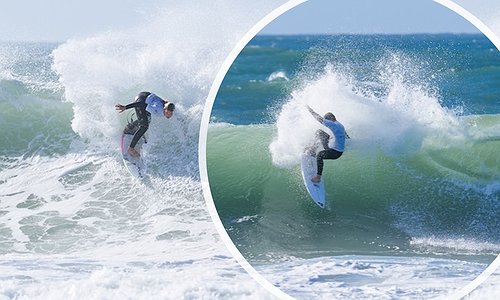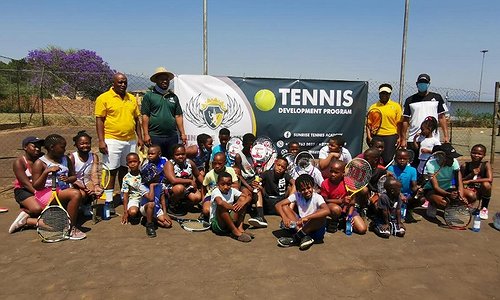Rising concern surrounding coaching structures in school rugby
Former springboks, provincial coaches and rugby academies are calling for more focus on coaching structures and the up-skilling of coaches at school-boy level if South Africa is to continue to be a contender in world rugby. By placing more emphasis on the coaching structures in school rugby, experts believe that more opportunities will be created for the skills development of players, resulting in a better pool of rugby players available for selection after school.
Industry experts, including the Sharks head coach Gary Gold, former Springbok assistant coach Dick Muir, director of rugby at Hilton College Greg Miller and former Lion’s Kicking Coach Braam van Straaten, all lay the blame at the lack of support for coaches, going as far back as primary school level, for the small pool of quality professional players available for national selection.
“We have the resources and the talent base in this country, it is unrivalled in the world, but I am fearful that we haven’t got the coaching structures and the infrastructure in place to enhance and develop this talent,” says Miller, GM of the Investec International Rugby Academy.
According to Miller, who has been coaching at school boy level for 19 years, in order to facilitate in developing the necessary coaching structures that players need, more emphasis needs to be placed on school rugby; right from the early stages.
“Currently we are feeding the funnel from the top, or in other words, we are concentrating on the “end product” rather than creating a “sustainable” product. We need to plough resources and money into this every year, at every age. Good coaching structures, starting at primary school level, will ensure that we develop through a process. By putting more time and effort into the coaches, and their development, will allow players, in turn, to develop,” says Miller.
Muir, a coach at the Investec International Rugby Academy, sites the selection process in schools as having a significant impact on the pool of players in the country as a problem affecting professional level. He says a lot of emphasis is placed on the size of players, with power over skill, and speed over agility, being the criteria for playing in school teams.
“We are wasting a lot of potentially good players who stop playing because of the lack of enjoyment after finishing school. After school level there is a gap in opportunities for players to continue to work on their skills before provincial level, and while Varsity Cup assists in this filling this gap, more emphasis should be placed on club rugby,” says Muir.
He believes that SA needs to be investing in school coaches by assisting them in developing a coaching framework based on the latest trends, techniques and laws of the game.
“We need to direct more of our resources into this area and help to create platforms for the coaches to develop. Evolving with the game through constant upliftment will allow coaches to grow within their school system,” says Muir.
Former Border player, former Selborne College coach and current Eastern Province Kings backline coach, Phiwe Nomlomo, says school coaches need to allow players to think for themselves, on and off the field, to insure they are able to think under pressure and execute the skill needed in a game. He believes that coaches need to simulate the game as much as possible during their training sessions in order to achieve this.
Van Straaten, who has been a prominent school rugby kicking coach since his retirement from international rugby, agrees with Muir and says that many school coaches are blurring the basics of the game by complicating training sessions and matches by attempting to emulate provincial and international level games. Van Straaten says coaches who are not open to the changes within the game are hindering their ability to teach players the necessary technical skills.
“Players need the correct technical information from the early stages so that they don’t need to go through trial and error training which often results in the accumulation of bad habits. Coaches need to emphasise the importance of technical skills as it impacts on the safety of players, reduces their mistakes and provides them with a love for the game,” says van Straaten.
Gold agrees saying due to current coaching techniques players are often “one-dimensional” in the way they perceive the game.
“The SA culture of rugby is conservative, which means we don’t develop our skills as much as, for example the New Zealanders, who are playing an expansive game,” said Gold.
He believes the role of these coaches is to assist players to continuously work on their skills base but sites the problem of not enough skilled coaches as one of the difficulties.
“I urge coaches and players to keep on challenging each other to grow and increase their knowledge. Staying up-to-date with the latest information is paramount to your growth and the best way to do this is to learn from former professionals,” advises Nomlomo.
“Players will flourish if schools create a positive rugby culture by emphasising the enjoyment of playing the sport. Schools also need to create an environment where players are allowed to express themselves and develop within their playing structures,” says Muir.
“Ability is born, but talent is coached,” says a passionate van Straaten.
The Investec International Rugby Academy’s players’ and coaches courses will take place from 9 to 13 July at St Charles College in Pietermaritzburg. Visit www.investecacademy.com or contact Bernadine on 031 940 5565 or bernadine@investecacademy.com.



